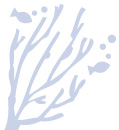


Training course 2016
Shipping and cetaceans:
Stakes, risks and how to improve relations
Reasons for the course
Since 2000, shipping companies and researchers have been working towards a common goal: to limit the risks of collision between large cetaceans and commercial vessels, a frequent event in the Mediterranean. Since 2005, amongst a range of other programmes this alliance has been developing a training course for watchkeeping personnel (active or in training) operating in the Mediterranean. This course is free and takes place every year at the École Nationale Supérieure Maritime de Marseille (French National Maritime Superior School of Marseille). It is based on the following observations :
- Watchkeeping personnel aware of the issue of collisions display better performance in large cetacean detection,
- Measures aimed at reducing the risks of collision exist (e.g. REPCET) but require a means of being more widely recognised,
- There is a high demand for information from navigation companies who are preoccupied with the ecological impacts of their activities, concerning these issues as well as the functioning of the marine ecosystem,
- New unifying approaches must be implemented in order to develop or revitalise relations between commercial navigation and environmental management in the Mediterranean.
Other important ecological issues are also addressed during this course, and in particular acoustic impacts of commercial navigation and the issue of dependence on fossil fuels and greenhouse gas emissions.
Interests of the system for port and coastal infrastructures
- Improvement of security on board high speed vessels (known cases of leakage following collisions in the Mediterranean, numerous passengers injured around the world including at least two known fatalities)
- Study of the limitation of dependence on fossil fuels,
- The training course may be integrated into the ecological responsibility policy of participating companies.
Importance of the course for ports
- Limitation of health risks (e.g. with a 40-tonne carcass) and the costs involved in disposal of the dead animal (explosives for a whale carcass in general cost between 11 000 and 25 000 euros, and can have serious ecological consequences).
Importance of the course for the marine ecosystem, cetacean populations and environmental management
Collisions represent a major cause of mortality for fin whales (Balaenoptera physalus) and sperm whales (Physeter macrocephalus) in the Mediterranean. Ecologists are worried about the impacts of these accidents on the populations of these species which are essential to the marine ecosystem, but which are also extremely fragile (being restricted to the Mediterranean and weak in numbers due to slow reproduction rates), and are already subject to many anthropogenic disturbances.
In response to the major concerns of the Pelagos Sanctuary and ACCOBAMS, this training course contributes to the preservation of large cetaceans in the Mediterranean. In addition, the course reinforces and develops collaborations between navigation companies and environmental administrators. It promotes in particular population monitoring from commercial vessels, as well as reporting of scientific data on cetaceans encountered by watchkeeping personnel.
The course also leads to concrete solutions to limit the acoustic disturbances, greenhouse gas emissions and fossil energy dependence of the participating shipping companies.
2016 programme and speakers:
Recognition:
An official certificate is issued to each participant by the French Ministry of Ecology and Sustainable Development.
Dates and Enrolment 2016:

Session 1: Watchkeeping personnel currently in activity
Date: 25 March 2016Location: École Nationale Supérieure Maritime de Marseille
(French National Shipping School)
39, avenue du Corail - 13285 MARSEILLE CEDEX 8
Details:
- 9:00am – Welcome / coffee (Grand Amphi conference room)
- 9:30am – Teaching begins
- 12:30pm – Lunch
- 2:30pm – Teaching resumes
- 5:30pm – Drinks
The course is financed by the French sector of the Pelagos Sanctuary, PACA Regional Council, Var General Council and the "Fondation Nicolas Hulot", with the logistical contribution of the ENSM of Marseille. It is offered free of charge to watchkeeping personnel in all navigation companies, giving priority to companies frequently in the French sector of the Pelagos Sanctuary. Lunch is organised but not included. The number of participants being limited (8 per company), enrolment is essential (deadline: 11 March 2016).
REGISTRATION and information:
formation@souffleursdecume.com or Call: +33 (0)4 94694493


Session 2: ENSM students
Date: 31 MarchLocation: École Nationale Supérieure Maritime de Marseille
(French National Shipping School)
39, avenue du Corail - 13285 MARSEILLE CEDEX 8
Details:
- From 10am to 12am: Grand Amphi conference room
This module is financed by PACA Regional Council, Var General Council and the "Fondation Nicolas Hulot", specifically for 3rd year ENSM students.
REGISTRATION and information:
formation@souffleursdecume.com or Call: +33 (0)4 94694493

Key figures
Since 2005, the following have taken part in the course:- 12 shipping companies
- 86 seagoing officers
- 21 sailors
- 17 sedentary managerial employees
- The Maritime Prefecture of Toulon, the French Navy and the CROSSMED (French Mediterranean MRCC)(33 Officers)
- 20 scientists and MPA managers
- 23 Captain students
- Around 520 ENSM students
- Supervision of 3 ENSM final papers on the subject of collisions













































